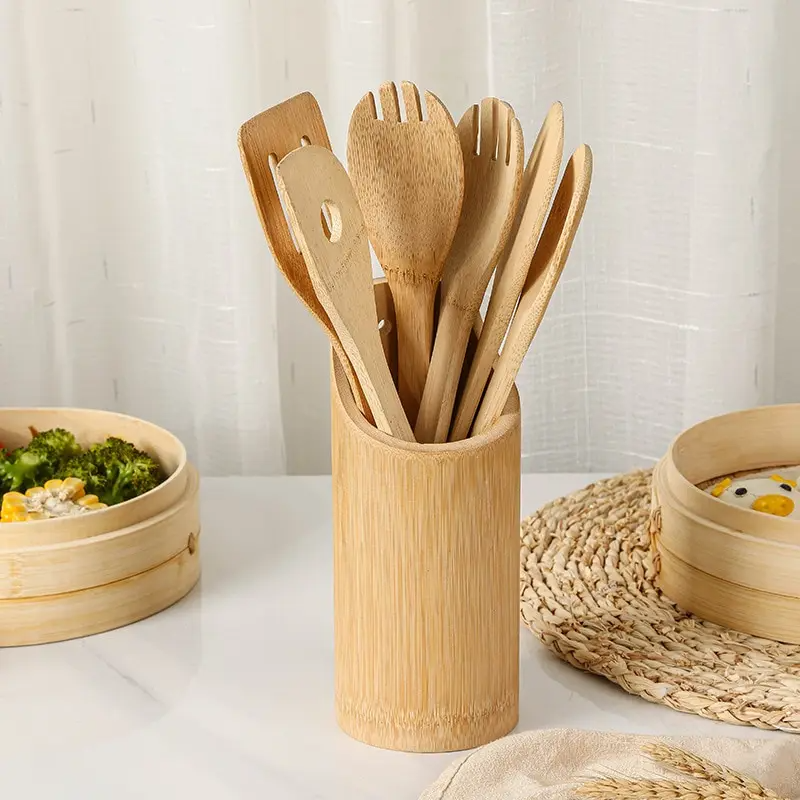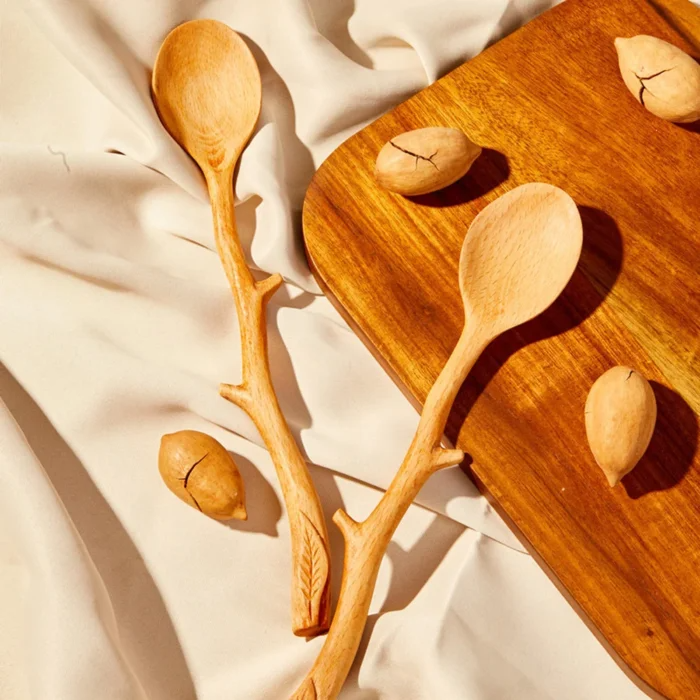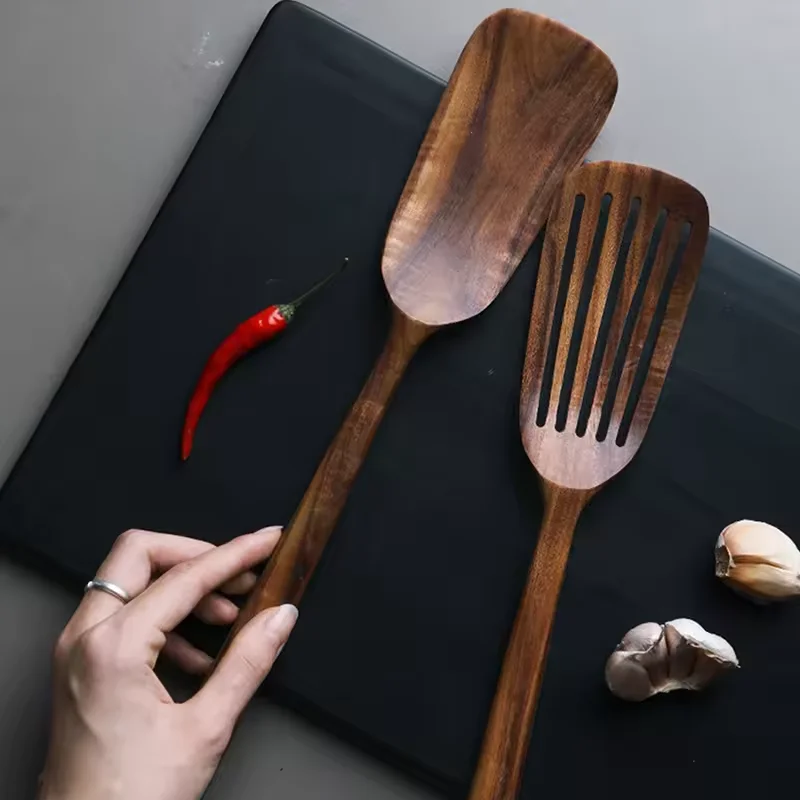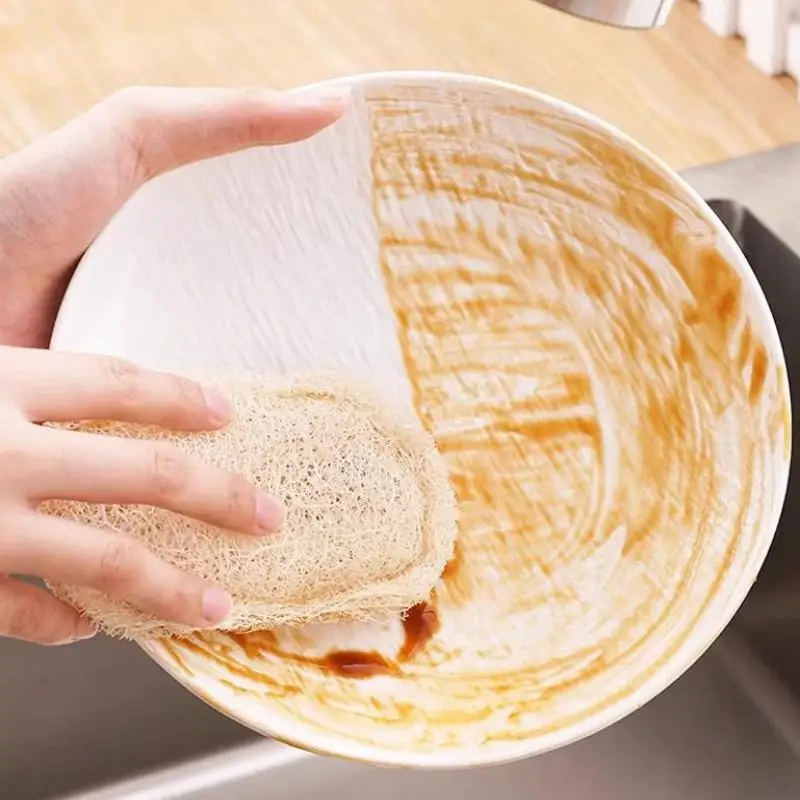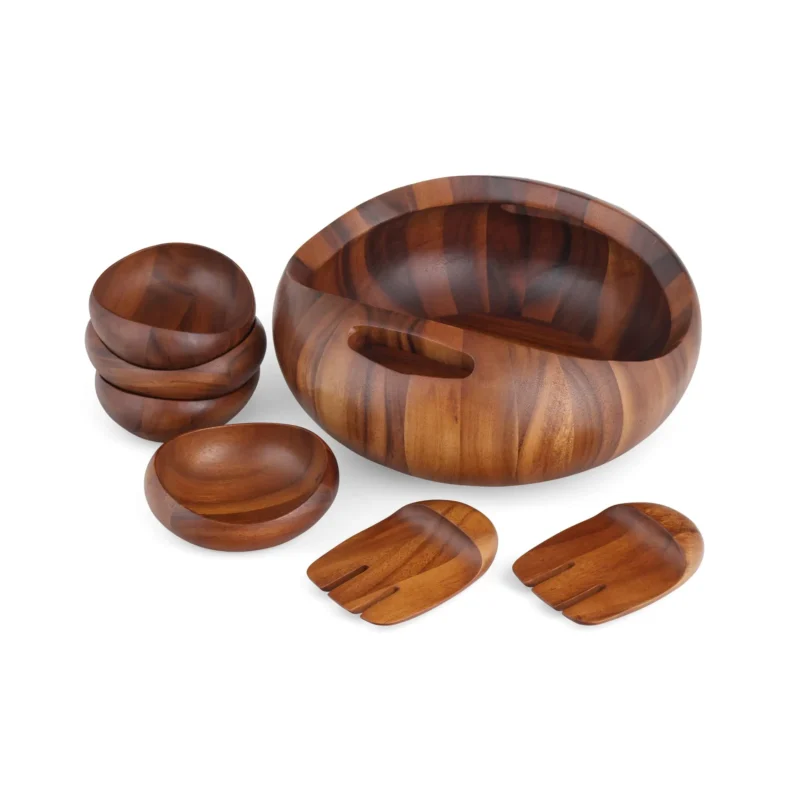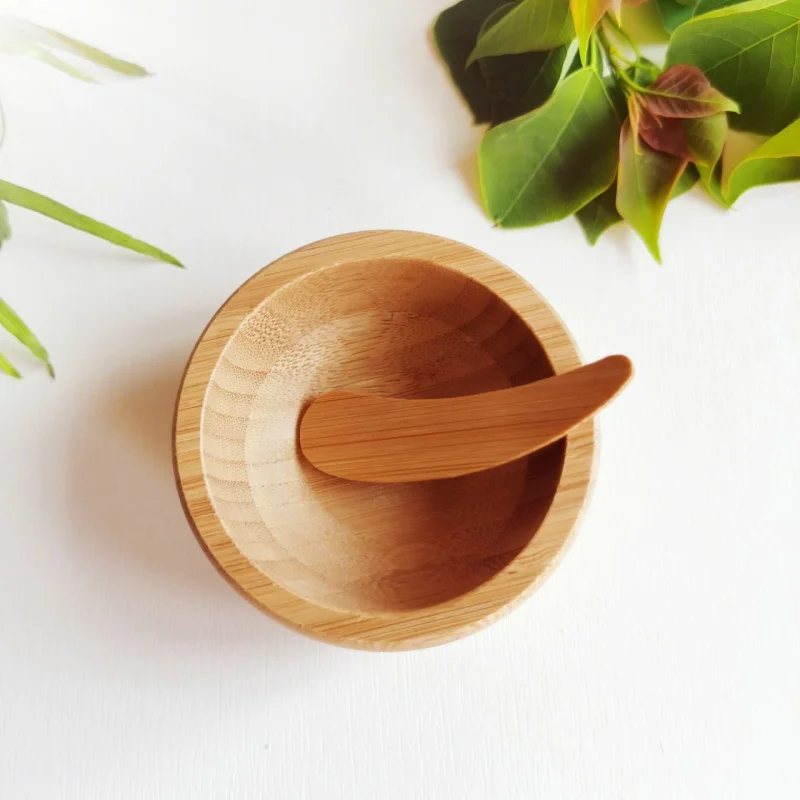Bamboo kitchenware is a popular choice for eco-conscious individuals who appreciate its sustainability, durability, and natural beauty. Proper care is essential to maintain the longevity and appearance of your bamboo utensils, cutting boards, and other kitchen items. In this blog post, we’ll share simple and effective tips for cleaning, storing, and maintaining your bamboo kitchenware to ensure it remains in excellent condition for years to come.
Why Choose Bamboo Kitchenware?
Before diving into the care tips, let’s briefly discuss why bamboo kitchenware is an excellent choice for your kitchen:
Sustainability: Bamboo is a highly renewable resource that grows quickly without the need for pesticides or fertilizers.
Durability: Bamboo is a strong, resilient material that can withstand heavy use.
Aesthetic Appeal: Bamboo kitchenware has a natural, elegant look that complements any kitchen decor.
Eco-Friendly: Bamboo products are biodegradable and have a lower environmental impact compared to plastic or metal alternatives.
Now that we understand the benefits of bamboo kitchenware, let’s explore how to care for it properly.
Cleaning Your Bamboo Kitchenware
Proper cleaning is crucial to keep your bamboo kitchenware in top shape. Here are some steps to follow:
Hand Wash Only: Always hand wash your bamboo kitchenware with mild soap and warm water. Avoid using the dishwasher, as the high heat and harsh detergents can cause the bamboo to crack and lose its finish.
Avoid Soaking: Do not soak bamboo items in water for extended periods. Prolonged exposure to water can weaken the bamboo fibers and cause splitting or warping.
Use a Soft Sponge: Use a soft sponge or cloth to clean bamboo kitchenware. Avoid abrasive scrubbers, which can scratch the surface and damage the finish.
Rinse Thoroughly: Ensure all soap residue is thoroughly rinsed off to prevent any buildup that could affect the bamboo’s appearance and longevity.
Dry Immediately: After washing, dry your bamboo kitchenware immediately with a clean, dry towel. Avoid air drying, as excess moisture can lead to mold growth or warping.
Maintaining Your Bamboo Kitchenware
In addition to regular cleaning, proper maintenance is essential to preserve the quality and appearance of your bamboo kitchenware:
Apply Oil Regularly: Periodically treat your bamboo kitchenware with food-safe mineral oil or bamboo conditioning oil. This helps to maintain the bamboo’s natural moisture, prevent cracking, and enhance its appearance. Apply a small amount of oil to a clean cloth and rub it into the bamboo surface. Let it sit for a few hours or overnight, then wipe off any excess oil.
Avoid Extreme Temperatures: Keep your bamboo kitchenware away from extreme temperatures, such as direct sunlight, stovetops, or ovens. Excessive heat can cause the bamboo to dry out, crack, or warp.
Store Properly: Store your bamboo kitchenware in a cool, dry place. Ensure cutting boards are stored upright to prevent warping. Avoid stacking heavy items on top of bamboo utensils to prevent bending or breaking.
Handle with Care: Although bamboo is durable, it can still be damaged by rough handling. Avoid using bamboo utensils on extremely hard or frozen foods, and do not use them as a lever to pry open jars or cans.
Addressing Common Issues
Even with proper care, you may encounter some common issues with bamboo kitchenware. Here’s how to address them:
Splitting or Cracking: If your bamboo kitchenware starts to split or crack, apply a generous amount of food-safe mineral oil to the affected area. Allow the oil to soak in overnight, then wipe off any excess. This can help to seal the crack and prevent further damage.
Stains and Odors: To remove stains or odors, make a paste of baking soda and water. Apply the paste to the stained area and scrub gently with a soft sponge. Rinse thoroughly and dry immediately. For persistent odors, rub a lemon wedge over the surface and let it sit for a few minutes before rinsing and drying.
Mold or Mildew: If mold or mildew develops, clean the affected area with a mixture of vinegar and water. Rinse thoroughly and dry immediately. To prevent mold growth, ensure your bamboo kitchenware is completely dry before storing.
Conclusion
Caring for your bamboo kitchenware is simple and straightforward. By following these cleaning, maintenance, and storage tips, you can keep your bamboo utensils, cutting boards, and other kitchen items in excellent condition for years to come. Not only will you enjoy their natural beauty and functionality, but you’ll also contribute to a more sustainable and eco-friendly kitchen. Embrace the benefits of bamboo kitchenware and ensure its longevity with proper care and attention. Bamboo kitchenware is a sustainable and stylish choice for any kitchen. Lightweight, durable, and naturally antibacterial, bamboo utensils, plates, and bowls are perfect for everyday cooking and dining. Unlike plastic, bamboo is biodegradable and eco-friendly, making it a great alternative for reducing waste. Its smooth finish and modern look add elegance to your kitchen while being safe for all types of cookware. Upgrade to bamboo kitchenware for a greener, healthier lifestyle!
Thanks for reading… Regards: Emily Smith













